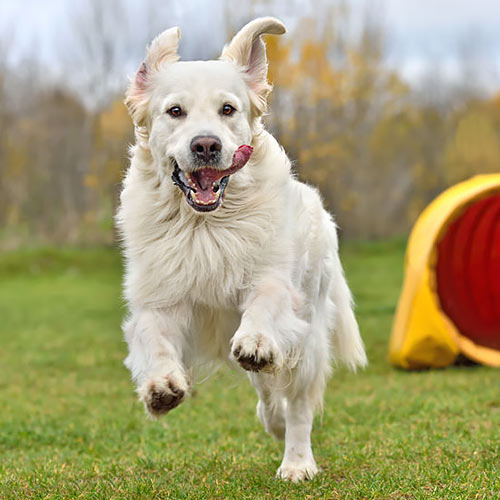You’ve probably heard that there is a canine respiratory virus going around in various parts of the country. The subject can certainly be unsettling. Some media reports seem to suggest a dramatic worldwide epidemic (time will tell if they are correct or not) with words like “killer virus” or simply “mysterious.” But catchy titles and flashy drama means higher ratings, right?

Keep in mind that the virus is a developing situation. Things can/could change quickly as more facts rise to the surface. Let’s look at what is known at this point.
What is it?
As of the time of this writing, the scientific research is focusing upon the “what is it” variety. Experts do not yet know what it is. Once that is settled, then maybe they can work towards a vaccine or something to prevent/reduce it.
Since not much is known at this time, if your dog gets the virus, there is little that can be done. There are antibiotics to help with the symptoms. Then it just needs to run its course. There is currently no vaccine and no test to check if the dog has the virus, etc.
It is spread through miniscule droplets being dispelled when a dog coughs or sneezes. Contaminated items (food bowls, feces, toys) and surfaces are another big player as well.
Symptoms of the virus are coughing (usually getting worse when the dog gets excited), gagging (possibly with saliva being expelled), decreased appetite, labored breathing, runny eye/nose (much like a cold in humans). The virus has been known to be fatal in some dogs, usually (it seems) when the dog has some other health issue in addition to this virus. Not all dogs will have the same symptoms. The depth/seriousness of the symptoms does vary as well; some dogs become really serious and for others it’s just a small cough.
What can be done now?
Make sure your dog is current on vaccines, including Bordetella (kennel cough). Some symptoms of this new virus are similar to kennel cough so it is suggested that the vaccine can help to limit the symptoms.
Secondly, do all you can to provide optimum health for you dog in other aspects. This includes good nutrition, exercise, keeping the dog at a correct weight, etc.
This bug is aggressively contagious. Therefore, limit exposure to other dogs. This includes dog parks, groomers, boarding facilities, etc as these are currently considered at high risk.
What should I do if my dog has symptoms?
Contact your vet today, now, quickly. Warn them ahead of time that you suspect this respiratory virus (the Vet may have protocols in place at their practice). They will most likely prescribe some antibiotic, possibly a steroid shot, etc
It is also recommended (very strongly) to quarantine your dog for at least two weeks after symptoms cease – some experts suggest longer (remember, this is a developing situation so things can change quickly as more facts become known).
This situation creates some serious issues for doggie training/socialization as well. You’ve probably heard us emphasize repeatedly the importance of good socialization with your dog. Dogs do suffer without that socialization. However, this bug adds a difficult twist. Places that allow dogs can be contaminated already and obviously you don’t want your pooch to get this bug.
The advice given by the experts (at this time; remember it could change as more becomes known) is to use caution. Wash your hands in-between handling dogs. Don’t allow shared water/food bowls, toys, beds. Yes, it is challenging!
One last word of caution…everything you see on TV or posted online is not aligned with the facts. Keep your cool and selectively educate yourself. As for this article, it has been written with the information given to us by our own awesome veterinarian (who is in daily contact with our state Board of Health) as well as the few scientific-based studies currently being conducted. The reason for this article is to keep dog owners informed, not to incite anxiety. While we all love our doggies, let’s try not to panic but remain calm and maintain their overall health to the best of our ability. When that’s in place, they’ll be better off whether they contract this virus or not.

